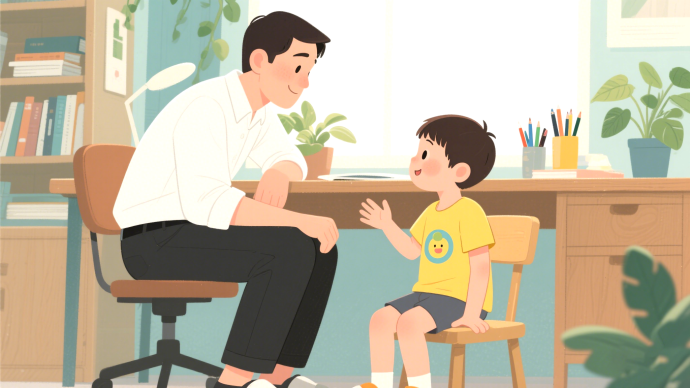
What comes into your mind when you hear “mental health”? Many parents think of depression, anxiety or eating disorders, but the World Health Organization defines it as “a state of well-being” where one: ①Realises his or her abilities; ②Can handle the everyday stresses of life; ③Can work productively; ④Can make contributes to the community. Children with good mental health are confident and optimistic, building friendships and pursuing goals. While challenges naturally bring sadness or anger, resilience — the ability to cope and recover — is key. This skill takes time but can be learned. Here are tips to help your children:
Listen to your child. Ask about what they did at school or what they want to do on the weekend. Listen to their worries and provide reassurance.
Help them stay connected. Create opportunities for your kids to spend time with friends and family. This can mean visits, video calls or fun weekend activities.
Give reassurance. Emotions such as sadness or anger can be confusing for children. Let them know that it’s okay to feel these emotions and teach them how to express them in a healthy way.
Encourage physical activity. Exercise promotes both mental and physical health. Consider healthy family activities such as biking and swimming, and make it a regular part of your schedule. After-school sports are also a great idea.
Establish a routine. This will help your kids develop healthy habits and feel a sense of security.
Spend time together. Take a few minutes out of each day to spend time with your kids. Play, read or cook together — the important thing is to find an activity that both you and your child enjoy.
Help develop their self-esteem. Saying things like “you worked so hard” helps children take pride in their efforts. Give genuine praise and provide your kids with opportunities to practise independence.
Watch out for changes in their behaviour. Mood swings, anxiety or changes in appetite can point to bigger issues. If it doesn’t subside after a few weeks, you may want to consult a counsellor.
Take care of yourself. Parenting can be difficult, so it’s important to take care of your own physical and mental health. This also sets a positive example for your children, so they know how to deal with stressful situations in the future.
原创编写 版权所有 侵权必究! 每日更新 个性化阅读 英语飙升!
3.3. You should consult a professional when ________ .
A kids feel sad
B kids have mood swings
C kids’ behavioural changes last long
D kids want to pursue goals
解析:选C。C 细节理解题。根据倒数第二段的“Watch out for changes in their behaviour. Mood swings, anxiety or changes in appetite can point to bigger issues. If it doesn’t subside after a few weeks, you may want to consult a counsellor”可知,当孩子出现行为变化,如情绪波动、焦虑或食欲改变等情况,且这些情况持续几周都没有缓解时,就应该咨询专业人士。故选C。
4.4. What can we infer from the passage?
A Sadness is abnormal.
B Resilience is inborn.
C Kids need parental support.
D Routine limits freedom.
解析:选C。C 推理判断题。文章中多处提到家长应倾听孩子、给予安慰、帮助孩子等,可推断出孩子需要父母的支持,C选项正确。A选项“悲伤是不正常的”,与文中“While challenges naturally bring sadness or anger”相悖;B选项“韧性是天生的”,文中提到“This skill takes time but can be learned”,说明韧性可学并非天生;D选项“常规限制自由”,文中说建立常规有助于孩子养成健康习惯和获得安全感。故选C。
